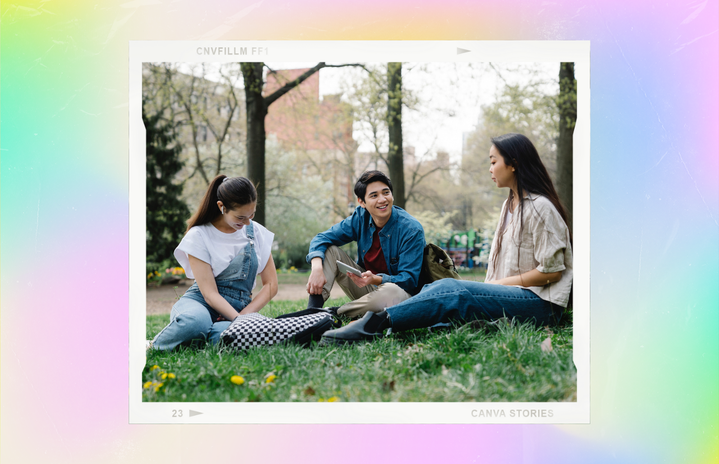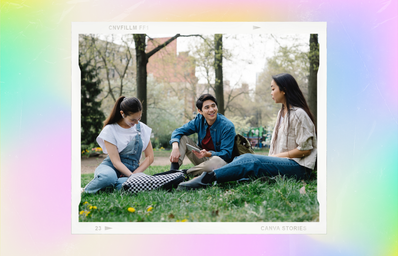One of my favourite things about uni life is being thrown into a melting pot of people from around the country and even the globe, each with unique life experiences, cultures, and political ideas. Therefore, whilst it can take as little as a joint interest in “Gilmore Girls” to get a friendship blossoming, once you get a little closer and start to broach the deeper topics, things can get a little tenuous, especially given Gen Z’s political passion. In my experience, as we’ve all seen at family Christmas dinners, political differences rarely fail to be a point of tension in relationships. However, using my guide, I feel these disputes can be mediated- with the only squabbles you’ll face in your accommodation being over whose turn it is to take the bins out.
Once a disagreement comes up, it is first important to establish common ground. Identifying shared interests and values beyond politics can foster a sense of unity. Whether this be veering the topic of conversation towards a jointly beloved TV show, or a shared hatred for that one module on your course, perhaps reinstating the idea of your compatible personalities and significant friendship aside from the political sphere will be beneficial. A study published in the Journal of Social and Personal Relationships found that friendships based on shared interests tend to be more resilient in the face of political differences. Thus, in some cases maybe the best option is to agree to disagree and focus on the reasons you are friends, not the reasons you aren’t.
As with all relationships, honesty is the best policy. Open communication and frank discussions about your differing beliefs are the most mature genre of conflict resolution. If you agree to not let things get heated and escalate, calmly justifying your beliefs may open both of your minds to new perspectives, therefore improving both parties’ social and political intelligences. It’s my view that encouraging open discussions about political differences promotes a culture of understanding. Research from the Pew Research Centre indicates that effective communication is crucial, with 56% of Americans stating that discussing politics with people they disagree with is “stressful and frustrating” in a recent poll.
A big point to remember in the heat of the moment is to choose your battles wisely. Again, I understand how politically charged modern-day life and the concerns of our generation are, the result being a fiercely opinionated era of students. This comes with its pros and cons, because whilst it makes for riveting and empowering debates about the state of our world, sometimes, I know myself from experience, it can be difficult to let go of our intense core values when opposed. Returning to my first point, take a second to remember why you initially became friends regardless of politics. Prioritising maintaining friendships, particularly with best friends and housemates, is at the end of the day more crucial to your daily life and overall well-being than how you each vote in the next election unless, of course, the friend’s views cross a boundary into harmful or prejudiced.
Furthermore, stay educated on political topics, including those extrapolating from your own. For example, if your news feed tends to be left-leaning, try to expand your incoming content to be more inclusive of Conservative ideas and publications. Whilst you are under no obligation to agree with what you are reading, being aware of differing perspectives can strengthen your own beliefs by challenging them. I believe it’s healthy to challenge even our most core morals to ensure they are justifiable and to realise why we feel so strongly about them. Alternatively, your views might change which is again, a perfectly healthy practice that only adds nuance and well-roundedness to your opinions and personality rather than getting stuck in an aggressive rut of a single stubborn thought path. According to a survey by the Knight Foundation, 87% of college students believe it is important to be informed about current events and politics. Therefore, we can see that Gen Zers are engaging in the news and sociopolitical issues already, however, we must be careful not to specialise, cultivate our newsfeed, and become too narrowminded as when this happens it can be even harder and more surprising when someone disputes your values.
Although conflict in such a diverse atmosphere is expected, being respectful of each other’s boundaries is important to transform a bitter argument into a useful and interesting debate. Recognise when a topic may be too sensitive for discussion and avoid pushing boundaries by reading your friend’s emotional state. Whilst you may feel passionately, judge the time and place of this discussion. Perhaps if the other person has a lot on their plate right now, let a heated debate dissipate and revisit it another time.
Another option is finding some sort of middle ground between your two points of view. You can explore areas of compromise or shared values within your political discussions. Some sort of compromise may settle the argument, however, I understand that this is not always possible in entirely opposing circumstances. If possible, however, finding a middle ground or common ground might allow each person to better sympathise with the opposing view, or at the very least amicably settle the argument via the reduction of such polarisation.
Overall, I’d like to reemphasise the importance of maintaining strong friendships despite political differences, in particular with light to personal growth and enrichment. Longitudinal studies, such as those conducted by the National Longitudinal Study of Adolescent to Adult Health, consistently show that diverse social networks positively impact individuals’ well-being over time. I truly believe that embracing diversity and engaging in debate can enhance one’s political knowledge, however, letting things escalate unnecessarily if the opposing person’s views are not harmful just different, is not worth losing friends over.


